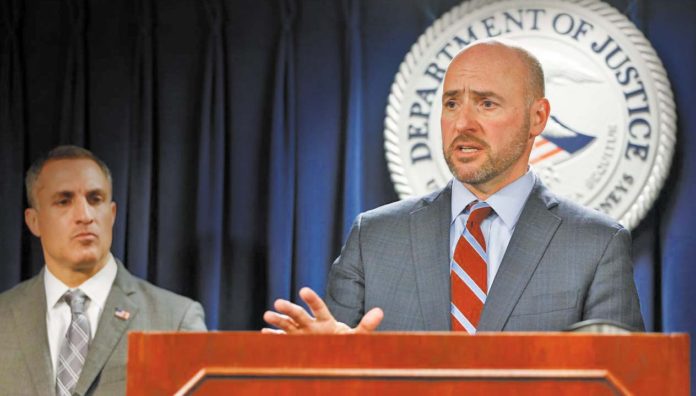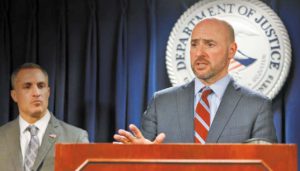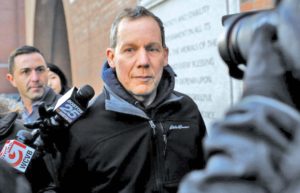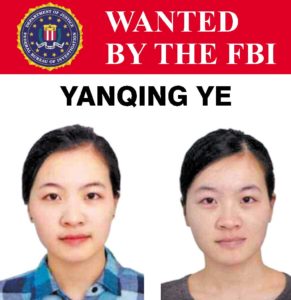
On 28 January, the Department of Justice announced three separate cases in a single press release – charges against Dr Charles Lieber and two Chinese nationals.
Dr Lieber is a nanoscientist who studies and develops extremely small materials on the nanometer scale. The second, Yanging Ye, who is in China, is a Lieutenant of the People’s Liberation Army researched U.S. military projects and compiled information for the PLA on two U.S. scientists. The third, Zaosong Zheng, had conducted cancer research at Harvard’s Beth Israel Deaconess Medical Center and attempted to smuggle out 21 vials of biological specimens.

These three cases were not connected to the coronavirus pandemic, but nevertheless demonstrate the Chinese modus operandi to steal information from the Western countries.
The Case of Charles Lieber
Dr Charles Lieber, chair of Harvard University’s chemistry and chemical biology department, allegedly lied to both the Department of Defense and the National Institutes of Health about his affiliation with Wuhan University of Technology (WUT), and his involvement with China’s “Thousand Talents Plan,” a programme designed to recruit Chinese ex-pats and foreign scientists to China.
According to court documents, since 2008, Dr. Lieber who has served as the Principal Investigator of the Lieber Research Group at Harvard University, which specialized in the area of nanoscience, has received more than $15,000,000 in grant funding from the National Institutes of Health (NIH) and Department of Defense (DOD). These grants require the disclosure of significant foreign financial conflicts of interest, including financial support from foreign governments or foreign entities.

China’s Thousand Talents Plan is one of the most prominent Chinese Talent recruit programs seek to lure Chinese overseas talent and foreign experts to bring their knowledge and experience to China and reward individuals for stealing proprietary information. Under the terms of Lieber’s three-year Thousand Talents contract, WUT paid Lieber $50,000 per month, living expenses of up to Chinese Yuan 1,000,000 (approximately $158,000 at the time) and awarded him more than $1.5 million to establish a research lab at WUT.
In return, Lieber was obligated to work for WUT “not less than nine months a year” by “declaring international cooperation projects, cultivating young teachers and Ph.D. students, organizing international conference[s], applying for patents and publishing articles in the name of” WUT.
Lieber’s work was focused on novel ways of using nanowires in cells. He is not a biologist. The concern for investigators was that he was vulnerable to Chinese pressure in the future, because of the ‘corrupting’ amount of money involved.
Lieber was expected to disclose his Chinese ties and funds to Harvard and when receiving grant money from U.S. agencies. Lieber allegedly failed to do so on multiple occasions.
Furthermore, Lieber is charged with making false statements to the Department of Defense in 2018 and to the NIH in January 2019, well before the COVID-19 outbreak at the end of last year.
Yanging Ye
According to the indictment, Ye is a Lieutenant of the People’s Liberation Army (PLA), the armed forces of the People’s Republic of China and member of the Chinese Communist Party (CCP). On her J-1 visa application, Ye falsely identified herself as a “student” and lied about her ongoing military service at the National University of Defense Technology (NUDT), a top military academy directed by the CCP.
It is further alleged that while studying at Boston University’s (BU) Department of Physics, Chemistry and Biomedical Engineering from October 2017 to April 2019, Ye continued to work as a PLA Lieutenant completing numerous assignments from PLA officers such as conducting research, assessing U.S. military websites and sending U.S. documents and information to China.
According to court documents, on 20 April 2019, federal officers interviewed Ye at Boston’s Logan International Airport. During the interview, it is alleged that Ye falsely claimed that she had minimal contact with two NUDT professors who were high-ranking PLA officers. However, a search of Ye’s electronic devices demonstrated that at the direction of one NUDT professor, who was a PLA Colonel, Ye had accessed U.S. military websites, researched U.S. military projects and compiled information for the PLA on two U.S. scientists with expertise in robotics and computer science.
Furthermore, a review of a WeChat conversation revealed that Ye and the other PLA official from NUDT were collaborating on a research paper about a risk assessment model designed to decipher data for military applications. During the interview, Ye admitted that she held the rank of Lieutenant in the PLA and admitted she was a member of the CCP.
Ye, who is currently in China, does not have expertise in virology.
Zaosong Zheng
Zaosong Zheng, a 30-year-old Chinese national, who had conducted cancer research at Harvard’s Beth Israel Deaconess Medical Center, attempted to smuggle 21 vials of biological specimens out of the country.
In August 2018, Zheng had entered the United States on a J-1 visa and conducted cancer-cell research at Beth Israel Deaconess Medical Center in Boston from Sept. 4, 2018, to Dec. 9, 2019. It is alleged that on Dec. 9, 2019, Zheng stole 21 vials of biological research and attempted to smuggle them out of the United States aboard a flight destined for China.
Federal officers at Logan Airport discovered the vials hidden in a sock inside one of Zheng’s bags, and not properly packaged. It is alleged that initially, Zheng lied to officers about the contents of his luggage, but later admitted he had stolen the vials from a lab at Beth Israel. Zheng stated that he intended to bring the vials to China to use them to conduct research in his own laboratory and publish the results under his own name.

Zheng was charged with smuggling goods from the U.S. and making false statements to Customs and Border Protection officers. He remains in custody.
The FBI agent’s affidavit noted that the vials contained a brown liquid and that Zheng said he had stolen eight of the vials from the lab and then worked to replicate the remaining 11 without the knowledge of Beth Israel.
The Beth Israel lab in which Zheng had worked is focused on basic research about cancer, and studies, for example, the molecular details of how cancerous cells are able to overcome the normal checks on the cell cycle to form tumors.
Thousand Talents Plan
The Thousand Talents Plan or Thousand Talents Program was established in 2008 by the central government of China to recognize and recruit leading international experts in scientific research, innovation, and entrepreneurship – in other words to steal western technology.
At an April 2018 hearing titled “Scholars or Spies”, organized by two subcommittees of the US House of Representatives, the commissioner of the U.S.-China Economic and Security Review Commission, Michael Wessel, advised Congress to cut federal grants, loans or other assistance to participants of the Thousand Talents Plan. China has put “sleeper agents at our research universities to steal our scientific breakthroughs,” said Representative Lamar Smith, chairman of the House Committee on Science, Space and Technology, at the hearing.
Comments
What has Lieber’s arrest got to do with the global spread of the COVID-19 pandemic? Perhaps nothing. But joining the dots points to a secretive nexus between US scientists and China in its bid to access highly classified US research, especially in biotechnology.
Wuhan is one of China’s most important high-tech hubs. Like Harvard Professor Charles Lieber’s contractual work with the Wuhan University of Technology, a large number of US scientists work on assignments with Chinese universities. Lieber’s arrest will have a chilling effect on the American scientific community. The Wuhan University of Technology has 27 innovative research centres and several laboratories.
Wuhan itself is a city of many parts. It hosted the “Wuhan Spirit” informal summit between Prime Minister Narendra Modi and President Xi Jinping in 2018. But Wuhan has much more to commend itself. The city has attracted investors from 80 countries. It hosts over 6,000 foreign-owned companies. Fortune 500 firms have a large presence in Hubei – 85 have investments in the province. Wuhan has a large bio-industry. Located in a picturesque area dubbed “Biolake” – known officially as the Wuhan National Bio-Industry Base – the complex has six centres: biology innovation, biomedicine, bio farming, medical devices, medical health and bioenergy.

















